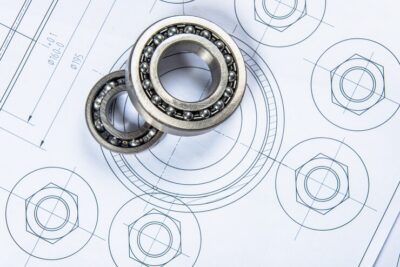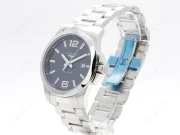Содержание
- 1 Bearing industry: global manufacturers, advanced technologies and influence on the development of mechanical engineering
Bearing industry: global manufacturers, advanced technologies and influence on the development of mechanical engineering
In this section, we will look at the key aspects associated with the creation and use of important components that ensure the smooth operation of many mechanisms. Bearings are an integral part of modern technology solutions and play a significant role in improving the efficiency and reliability of equipment.
The main market participants are represented by leading companies that carry out large-scale production and constantly contribute to the improvement of these products. These firms are actively introducing innovative methods and materials to meet the growing needs of industry.
Technical advances in this area are aimed at increasing durability and reducing friction in supporting elements. The results of this research and development have a direct impact on increasing productivity and reducing costs in the operation of machinery for various purposes.
The role of bearings in modern mechanical engineering
Main functions of bearings
Bearings serve to reduce friction between rotating and stationary parts of machinery, resulting in more efficient use of energy and longer equipment life. In addition, they ensure the correct direction of movement of parts, preventing their displacement and wear.
- Ensuring smooth rotation of shafts and axes
- Reducing energy losses due to friction
- Supports precise positioning of moving parts
Types of bearings and their applications
Depending on the operating conditions and reliability requirements, different types of bearings are used. Each of them has its own characteristics and scope of application.
- Roller bearings – used in heavily loaded systems where high strength and durability are required.
- Ball bearings – used in devices where high rotation speed and low noise level are required.
- Magnetic bearings — used in high-tech systems where complete tightness and absence of mechanical contact are required.
Thus, bearings are an integral part of modern mechanical engineering, ensuring the efficiency and reliability of various equipment.

Global leaders in bearing production
In this section, we will look at the key players in the global market, specializing in the creation of important components for various mechanisms. These companies not only set trends in their industry, but also actively introduce innovations, contributing to progress in the field of machinery and equipment.
Key players in the global market
The global bearing market is characterized by the presence of several leading firms that have significant capital and extensive scientific resources. These leaders are constantly working to improve the quality of their products and expand their range to meet the needs of various industries.
| Company | Main specialization | Geography of presence |
|---|---|---|
| SKF | Production of a wide range of bearings | Europe, Asia, America |
| Schaeffler Group | Development and production of rolling bearings and linear systems | Europe, Asia, America |
| NSK Ltd. | Manufacture of bearings and related products | Europe, Asia, America |
| NTN Corporation | Production of bearings and transmissions | Europe, Asia, America |
Innovation and growth
Each of these companies is actively pursuing new technologies to improve the efficiency and reliability of their products. This includes the use of new materials, improved manufacturing processes and the integration of intelligent monitoring systems. Such innovations not only improve bearing performance, but also contribute to overall advances in machinery and equipment.
Innovative technologies in bearing production
In this section, we’ll look at some of the most advanced techniques that are transforming the process of creating components that keep machinery running smoothly. These approaches are at the forefront of technological progress and play a key role in improving the efficiency and reliability of equipment.
Application of composite materials
One of the most noticeable areas of development is the use of composite materials. These materials, combining the properties of various substances, make it possible to achieve high strength and lightness at the same time. In the production of elements that provide rotation, such materials provide longer service life and less sensitivity to external influences.
- Carbon fibers for increased strength.
- Ceramic for improved heat resistance.
- Polymer-based composites for weight reduction.
Software-controlled manufacturing
Modern factories are increasingly introducing software-controlled systems that allow precise control of each stage of production. This ensures highly accurate and repeatable results, which is critical for delicate components such as bearings.
- Robotic assembly lines.
- Automatic quality control systems.
- Integrated software solutions for supply chain management.
Overall, these innovations not only improve the performance of the product itself, but also increase the efficiency of the entire production process, making it more flexible and adaptable to changes in the market.
Impact of the rolling bearing industry on economics and technological progress
In this section, we look at how the rotating component manufacturing sector has a significant impact on economic activity and the acceleration of scientific and technological development. The sector plays a key role in maintaining the efficiency and reliability of a wide range of equipment, which in turn drives economic prosperity and innovation.
Economic growth is closely linked to the productivity and quality of products produced by enterprises specializing in the manufacture of rotation bearings. Improving the performance of these components can improve the efficiency of machinery, resulting in lower costs and increased production volumes in various industries.
Technological progress in the production of rolling bearings is also a catalyst for the development of new methods and materials that can be used in other areas. For example, research into composite materials and nanotechnology used to create stronger, lighter supports can be adapted for other engineering applications. You can find out more on the website bbcr.eu.
Overall, the rolling bearings sector not only provides the basis for modern mechanical engineering, but also actively contributes to economic development and technological progress at a global level.






































